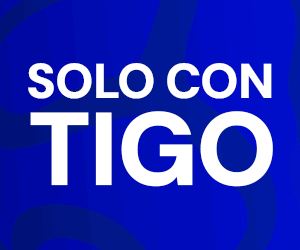Estimated reading time: 5 minutes
Caribe. Today marked the inauguration of the Ninth Ministerial Conference on the Information Society in Latin America and the Caribbean, which will be held through Friday, November 8 at ECLAC’s headquarters in Chile.
The region’s countries advocated today for deepening regional cooperation on digital transformation through concrete actions and projects, and they highlighted the start of a new stage for this regional process, also known as eLAC, which will celebrate 20 years in existence in 2025 and which allows for working on a Digital Agenda for Latin America and the Caribbean.
The region’s countries advocated today for deepening regional cooperation on digital transformation through concrete actions and projects, and they highlighted the start of a new stage for this regional process known as eLAC, which will celebrate 20 years in 2025 and which allows for working on a Digital Agenda for Latin America and the Caribbean.
Those attending the Ninth Ministerial Conference on the Information Society in Latin America and the Caribbean, which is taking place through Friday, November 8 at ECLAC’s headquarters in Santiago, seek to approve a new Digital Agenda for the region that would enable progress on a digital transformation that contributes to overcoming the traps that inhibit the region’s development.
The event’s opening session featured the participation of Alberto van Klaveren, Minister of Foreign Affairs of Chile; Juan Carlos Muñoz, Minister of Transportation and Telecommunications of Chile; Aisén Etcheverry, Minister of Science, Technology, Knowledge and Innovation of Chile; Óscar Mauricio Lizcano Arango, Minister of Information and Communications Technologies of Colombia; Claudio Araya, Undersecretary of Telecommunications of Chile; Virginia Pardo, Director of the Information Society area of the Agency for Electronic Government and the Information and Knowledge Society (AGESIC) of Uruguay; Amandeep Singh Gill, the United Nations Secretary-General’s Envoy on Technology (virtually); and Javier Medina Vásquez, acting Deputy Executive Secretary of the Economic Commission for Latin America and the Caribbean (ECLAC), who attended on behalf of Executive Secretary José Manuel Salazar-Xirinachs.
“I would like to thank ECLAC, on behalf of the Government of Chile, for convening this Ministerial Conference on the Information Society in Latin America and the Caribbean, where Chile has the honor of taking over as Chair of the Digital Agenda for Latin America and the Caribbean (eLAC) for the 2024-2026 period,” Foreign Minister Alberto van Klaveren indicated, reaffirming his country’s commitment to multilateralism and regional cooperation. “Gatherings such as these allow us to address as a region the reach of the Global Digital Compact, recently adopted at the Summit of the Future, and to explore its implementation through the eLAC2026 Agenda. This will enable us to ensure that our region’s vision plays a role and has an effective impact on the development of global technological governance,” he emphasized.
In a similar vein, Juan Carlos Muñoz, Chile’s Minister of Transportation and Telecommunications, stressed the need to address, as a country and a region, the regulations needed to make the “zero digital divide a reality,” in such a way that “no one is left behind,” while Claudio Araya, Undersecretary in the same Ministry, stated that “the digital transformation of our economies and societies is an opportunity to overcome inequities in Latin America and the Caribbean, improve regional productivity and break out of the development traps.”
In her remarks, Virginia Pardo, from AGESIC in Uruguay, recounted the actions that her country led as Chair of the Presiding Officers of the Ministerial Conference on the Information Society between 2022 and 2024. Next year, she said, the regional Digital Agenda will celebrate 20 continuous years in existence, and “it has goals and targets, poses challenges and is fundamentally a space for dialogue and collaborative action.” “Today we are meeting to define a new Digital Agenda for Latin America and the Caribbean,” a key instrument for guiding national digital policies, she underscored.
“We see the digital transformation and the strategic use of emerging technologies – such as artificial intelligence – as part of the solution for Latin America and the Caribbean to break out of the three development traps in which it is mired. But this will only be possible if we make progress on the real and effective use of digital technologies,” said ECLAC’s acting Deputy Executive Secretary, Javier Medina, who agreed that “regional cooperation will be ever more important for facing shared challenges, such as cybersecurity, data protection and the regulation of AI.”
ECLAC’s representative further highlighted that “these 19 years of joint work with the Digital Agenda for Latin America and the Caribbean, in the framework of the eLAC process, have shown us the relevance of strengthening and consolidating efforts and spaces for regional collaboration in order to move towards a more interconnected, productive and inclusive region.”
Amandeep Singh Gill, the UN Secretary-General’s Envoy on Technology, explained that “the Global Digital Compact ties together all the new issues in this area with a holistic approach that recognizes the interplay between development, the digital economy, human rights and safety online, data, and, of course, artificial intelligence. It has broken new ground for global digital cooperation.”
On this first day of the Conference, ECLAC officially presented to government authorities and key actors from the private sector, civil society, the technical community and international organizations, the document Overcoming Development Traps in Latin America and the Caribbean in the Digital Age: The Transformative Potential of Digital Technologies and Artificial Intelligence, which indicates that the region has a historic opportunity to utilize digital tools to address the three traps that inhibit its development: a first trap of low capacity for growth, a second involving high inequality and limited social mobility and cohesion, and a third trap of low institutional capacity and ineffective governance.
ECLAC also unveiled today its new Digital Transformation Lab, an initiative implemented in conjunction with the Deutsche Gesellschaft für Internationale Zusammenarbeit (GIZ) and financed by the German Federal Ministry for Economic Cooperation and Development (BMZ). The Lab has been conceived as a space for experimentation and innovation in which policymakers, technology specialists, academics and other stakeholders collaborate to address the challenges associated with digitalization and to define concrete actions.
The programme as well as general information on the Ninth Ministerial Conference of eLAC are available on the website that was specifically created for this meeting.
Members of the media are requested to complete this accreditation form in order to attend the conference in person. Journalists must have their media credentials or personal IDs with them to gain access to ECLAC.
Cepal.org





































